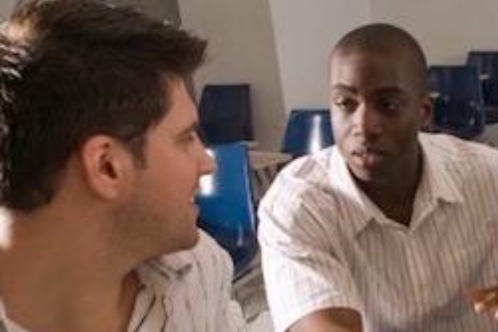What is Classical Education?
“The greatest service we can do to education today is to teach fewer subjects.
― C.S. Lewis, Surprised by Joy
What is classical education?
‘Classical education’ is shorthand for a cluster of related educational aims and methods. Classical education is one of humanity’s oldest wisdom traditions. It was recently forgotten in the west. Now, many around the world are re-discovering it.
Classical education is a set of the best, time-tested practices for education – the kind of education James Madison got at the college we now know as Princeton… the kind of education W. E. B. Dubois got at Harvard… that Jefferson wanted to give students when he started the University of Virginia. Frankly, it was the kind of education most Americans got in grammar school during the pre-Colonial era and the first 60 years after the Revolution.
As Founders Academy in Dallas says:
In a nutshell [classical education] is the same course of study that helped propel Western Civilization to the top of the world when it comes to civic institutions, personal liberty, philanthropy, economic enterprise, technological innovation, and relative safety and security. It is rooted in an approach that goes back to ancient Greece and Rome and developed over a long period of time in the West. Classical schools take an approach to education characterized by a traditional liberal arts and sciences curriculum and pedagogy, and an orientation towards truth, beauty, and goodness that aims to cultivate wise and virtuous citizens.
Classical education aims to free the mind and make truly independent reasoners who are responsible adults and members of society.
That said, not everyone agrees on the details or even the outline. Still, most people agree about what classical education is not. Classical education is not a radical innovation. It is not a social experiment. It is not indoctrination, not mere college prep, and not mere technical training.
My story
I love to learn. But, before college, no one had taught me how to learn. In college, I became a member of the Torrey Honors Institute at Biola University where we were mentored in reading well, thinking well, and writing well.
I became a classical educator myself and continued the pursuit of wisdom. Since then, I’ve acquired 15 years experience teaching and learning from great books. I was Master Tutor at the Torrey Academy in CA and Director of High School at Veritas Academy in KY before moving to a full-time position as Humanities Teacher at Trinity Classical. My passion is not only teaching students, but advocating for classical education among parents and the general public. I love to help schools to grow and mature.
I hope these resources help you not only to be a better educator, but to fall in love with learning all over again.
Six Properties of a Good Education

- Read Great Books. One clear mark of a classical school is a rich diet of “Great Books” of western civilization. These powerful books are among the best works ever produced by human hands. They are beautiful and timeless texts that – even when they are wrong – delight and instruct. They naturally enliven student interest and profoundly impact the imagination, mind, and heart of any who pick them up. Engaging in careful discussion in small groups naturally teaches students the “meta skills” of learning how to learn and equips them for a life of continual growth. Homer’s Iliad, Virgil’s Aeneid, Dante’s Divine Comedy, Shakespeare’s Tempest, Newton’s Principia, Wollestencraft’s Frankenstein, Dosteyevsky’s Brothers Karamasov, C. S. Lewis’ Chronicles of Narnia, Tolkein’s Lord of the Rings are just a few of the timeless, illuminating, accessible and fascinating books from the Western canon through which students are introduced to the history, the priorities, the dynamic life of our culture. Of course, the heritage of the west is not just its books; it includes art, architecture, music, science, technology, theater, and film. Students who are reared on such a nutritious intellectual diet are not only much more fascinated by their studies, but often find their mind, heart, and habits shaped for a lifetime of learning in and out of the classroom. The Great Books teach history folded in to its curriculum from the earliest stage.
- Learn Greek and Latin languages. Part of the commitment to mastering English is mastering our source languages: mostly Greek, Latin, and Hebrew. Most of the Great Books of the west were written in Latin or Greek. Until these works were translated, “students had to learn Latin and Greek for instrumental reasons” (Martin Cothran)
- Practice Socratic Discussion. A second mark of a classical school is a commitment to discussion and dialogue. Modern social scientists discovered again and again that students retain up to five times more information learned through discussion than they do through lecture. Students become a part of the Great Conversation going on through the Great Books. They don’t just spectate, they participate in dialogues about God, investigations into the natural world, and explorations of what it means to be human — all in the context of a group of friends who are on the same quest. Guided by a lively facilitator committed to speaking the truth in love, students discard false beliefs and acquire new truths in an exhilarating and challenging discussion.
- Acquire Moral and Intellectual virtues. Parents want their children to become thoughtful adults with character and integrity. Employers want workers of good character who can think well. Classical education, as it happens, specializes in just those two areas. The goal is not only to give students a standardized set of facts and abilities, but to form them into virtuous and thoughtful members of society, church, and family. The motive of many public education institutions is the production of productive members of society. The motive of classical schools is the formation of virtuous men and women. The Robert E. Lee was president of Washington College, he told his students, “We have no printed rules. We have but one rule here, and it is that every student must be a gentleman.” On this model, ethics is not one subject among many but a core of every subject. Like rationality itself, and the virtues of hard thinking, clear speech, a hatred of deception and falsehood, the ethical model expressed perfectly in Jesus Christ is the standard of all our behaviors and habits.
- Learn Language first, then Logic, Rhetoric, Math, Music (in that order): Many classical educators follow a three-stage process called the “Trivium”. Medieval schools followed a seven stage program called the Trivium (three) and Quadrivium (four). This model has roots in the ancient world and was formalized by medieval educators to map onto normal child development stages. For the first three stages, students proceed through Grammar, Logic (or Dialectic), and Rhetoric as their curiosity and capability increase. The grammar stage is a place of memorization. The logic stage is a stage of ratiocination. The rhetoric stage is the stage of creation. Grammar (concepts), Logic (conceptual structures at rest), Rhetoric (conceptual structures in motion). As students advance, they progress to the Quadrivium: Arithmetic (pure number), Geometry (number in space), Music (number in time), Astronomy (number in space and time).
- Learn the Master Skills. All truly well-educated people read well, write well, think well, and live well. The master skills to think and live well are the “real” subject behind every discipline: language, logic, math, reading, conversing, and speaking. Educational experts sometimes call these meta-cognitive processes. They are thoughts that apply to other thoughts. The classical education movement is aiming to get ‘back to the basics.’ Students learn not only subjects, topics, facts — they learn how to learn. Even as some facts are forgotten or some subjects never used again, the master skills of thinking, reading, writing, and speaking lasts a lifetime. We learn to read and write and speak, we become experts on this or that topic in this or that field not in order to puff ourselves up with knowledge, but to love God fully with our minds (and our whole selves) and to be equipped members of the Kingdom of God while sojourning in the city of man.
- Don’t just teach, mentor. The means to the end are actually simple: Trained educators mentoring students, helping them learn how to learn.
Healthy Particularity

Every classical school has its particular personality, place, and presentation. That is a strength rather than a weakness.
Various schools and educators will emphasis one or more of the above features.
For example, Andrew Kern lists five classical ideals:
- A unifying principal that orders all learning, thus an integrated, proportioned course of learning.
- Recognition of the transforming power of ideas, thus an emphasis on training students to contemplate ideas rather than merely retain content or master processes.
- Virtue as the end of education, rather than mere application, thus a concerted and rigorous effort to cultivate every human faculty in every student.
- Recognition of the need for mentors, models, examples, etc. who are masters of their area of knowledge and who are the kinds of people we hope the students will grow up to become. In a word: honor and recognition to genuine authority.
- Endless emphasis on reality over mere appearance, thus the recognition that perception is powerful, but it is not necessarily reality. When one is taught that perception is reality, accountability and the need to grow are either relativized, trivialized, or removed altogether.
Various schools and educators will add some components or subtract others.
Classical education is not a strictly defined entity under the purview of a few experts. It is our common heritage. It is our common property. It belongs to us all.
When teaching students to follow God and love goodness, truth, beauty, and justice, we ourselves seek to follow God and attain goodness, truth, beauty, and justice.
We don’t have to do it perfectly. We just have to do our part to restore the “Lost Tools of Learning” to our generation.
Join us!
More Good Introductions
- Dorothy Sayers on The Lost Tools of Learning
- Dr. Christopher Perrin’s excellent essay: Classical Education: An Introduction
- Sheryl Lowe’s early curriculum for introducing classical studies
- Martin Cothran on the seven liberal arts

